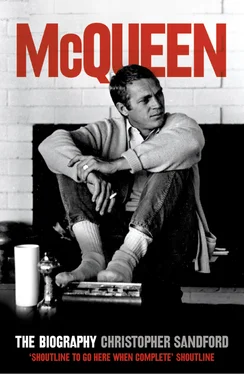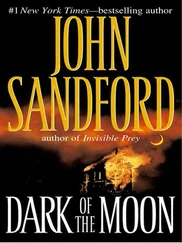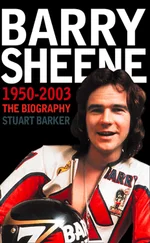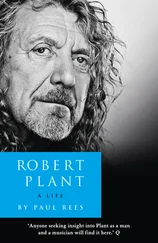Steve’s great achievement was to make a living without ever finding much of a job. That spring alone, he sold encyclopaedias and laid tiles; arranged flowers and trained as a bartender; applied for a longshoreman’s card; and was known to roll both dice and sleeping drunks. On a whim, he drove the Indian chief to Miami and back. Money, even during periods of relative fat, was always tight. When things were going badly, as they often did, Steve wasn’t above cadging ‘loans’ as well as collecting welfare. He took to haunting the kitchen door of Louie’s, his neighbourhood diner, where he earned the half-cowed, half-affectionate nickname Desperado. Between times, McQueen took up with another woman, this one a resting actress, who, largely on the basis that ‘you’ve already conned your way round the world – you’re a natural’, nagged him to audition. Occasionally, Steve’s voice would soar into a girlish treble. Now it broke. When the laughter had died down, he casually rang his mother to tell her he was thinking of enrolling in drama class. ‘Be sure to call me back when you flunk,’ she said.
‘I won’t flunk.’
‘Oh my God.’ Julian sloshed some more gin into a mug and hung up.
McQueen smashed his own glass against the wall. For him, too, the idea of acting – his acting – was no less unlikely. Clowning around in tights, Steve’s own phrase, jarred badly against the Levi-and-leather biker image he was already buffing. Yet in one sense it was a sane, logical move. McQueen, the unhappy outsider, had been posing all his life. Putting on a front to get what he needed, or to make the household reality vanish, was one of the few lessons he’d learned at Julian’s knee. His own term for this charade was scamming, and it was an art he made his own. The sheer hell of being natural deepened his gall and also his repertoire, so even his performances at home, in New York, swung from glum to tragic, which was the true reflection of his state of mind. Tortuous and immanent, much of Steve’s play-acting was a puerile need, near pathological, to bolt. What’s more, performing restored the Bogart, and other boyhood connections in McQueen’s life. Both Berri and Lukens, incomparably vile as father figures, had exposed him to some of the tools, cameras and the like, of their trade. There was the fact that he was a gifted mime. Finally, and this pulled heavily with Steve, ‘There were more chicks in the acting profession who did it.’ He was with one of them now.
McQueen signed up.
On 25 June 1951 Steve took the subway to Sandy Meisner’s dark, ivy-covered studio, the Neighborhood Playhouse. Meisner instantly grasped what film audiences would learn later. ‘He was an original, both tough and childlike – as if he’d been through the wars but preserved a certain basic innocence. I accepted him at once.’ A combination of the GI Bill and poker paid McQueen’s tuition.
It was Steve’s long-standing conviction that if you did your best in life, held your ‘mud’ always, then whatever happened you at least knew it wasn’t for lack of trying. But he was also a great believer in fence-sitting. His friend Bob Relyea remembers how ‘Steve had to be talked into almost all his best films.’ Some of the same ambivalence was there that first term at the Playhouse. Steve startled one group reading by declaring the day’s text ( Hamlet ) to be ‘candyass’. Even years later, when scripts were unfurled for him like rolls of silk before an emir, and McQueen’s accountant suffered a nervous collapse from hauling so many bags of money to the bank, he quite seriously told a reporter, ‘I’m not sure acting is something for a grown man to be doing.’
This sort of wavering, suspended between worlds, was Steve’s hallmark. Throughout that autumn and winter he commuted from squalid Christopher Street to the smooth Meisner, from all-night stud and truck-driving to parsing Chekhov. He quickly emerged as one of the Playhouse’s true characters, a man who lolled in, milk-pale and with a hunchback’s slouch, mumbling, unlit cigarette dangling at the perfect angle. His eyes caught the melancholy of his life. McQueen’s smile, according to Meisner, was ‘warm but always conditional’. For Yanni, watching Steve’s attempt at seduction ‘was as cosy as having a pit-bull lick your hand…You waited for him to snap.’ McQueen’s unabated desire to chop and change – almost a morbid addiction – proved that neither work nor women had cured the deep vulnerability inside the alcoholic’s boy from the farm. Insecurity was his watchword. When not electrifying the class, Steve seriously pondered a return to tile-laying at $3.50 an hour. He asked a friend called Mark Rydell, ‘Should I lay bathrooms, or should I perform?’ Rydell would remember, ‘I think he got into acting because he didn’t want to bust his ass.’
McQueen’s greatest skill was his ability to radiate. Picking up women, many of them as broke as he was, he switched on what Yanni calls ‘several million volts of synthetic charm’, and Steve himself termed his ‘shaggy-dog look’ when sponging money. It was rarely refused. But McQueen always went further than the mere touch. He believed that he had to shore up people’s confidence as well as trawl their purses. Years later one of his overnight guests recalled how she had hesitated when Steve asked her to take classes at the Playhouse in addition to her work as a secretary. Seeing her pause, he ‘half closed those eyes of his’ and asked: ‘Did you know any more about typing or filing when you started that?’
She shook her head, and he smiled. ‘You picked it up, didn’t you? Well, you can pick this up too.’ Then he leant over, kissed her, and said simply, ‘I’m with you.’
She enrolled at the Playhouse, ‘and because Steve was there I had the time of my life. My God! What an operator, and what a beautiful man.’
Largely thanks to the missionary work of Brando and Montgomery Clift, by 1951 a mainstream acting generation was still – just – running the show. A Method-acting generation was coming up behind, fast. Those who belonged to the new, so-called ‘torn shirt’ school, or were linked with some other group opposed to established convention in the arts, were already the critics’ darlings. Meisner’s class drew in a small but distinguished house. Talent scouts and even a few directors would come to the Playhouse’s annual revue, a combined graduation and gala night. This new cult of anti-hero duly attracted an agent named Peter Witt to the Christmas production of Truckline Cafe. Witt ‘loved the kid in the sailor suit’, whose near-actionable Brando parody both cribbed and surpassed the original. Peers like Rydell also began to talk up the novice who upstaged nearly every other actor in the intensity department. To them McQueen had an ‘air of wild rage’, even if, to others, it was really more Method with an animal glaze. Voice, movement, technique. Steve quickly made a whole system out of his childhood. He did anger so convincingly that, for the first but not last time in his career, he made people’s flesh creep. McQueen had few duties in handling such a slight role on such a small stage, chief of which was to look animated, and to make the other actors shine. He proved incapable of doing either, but otherwise used the play well. ‘Steve was spellbinding,’ says Yanni.
Meisner saw quite another thing in McQueen:
‘Professionalism, always the professionalism. Dog tired, he’d put his feet in a bucket of ice water to jerk himself awake while he learnt lines.’ There were plays and scripts to be read. Steve threw himself into it all with an energy born of ambition. He’d set out to become, he announced, a great American actor.
His commercial debut followed that spring of 1952, in a Jewish repertory production on Second Avenue. The very first words McQueen uttered on stage, in Yiddish, were direly prophetic: ‘Nothing will help.’ After the fourth night he was fired.
Читать дальше












